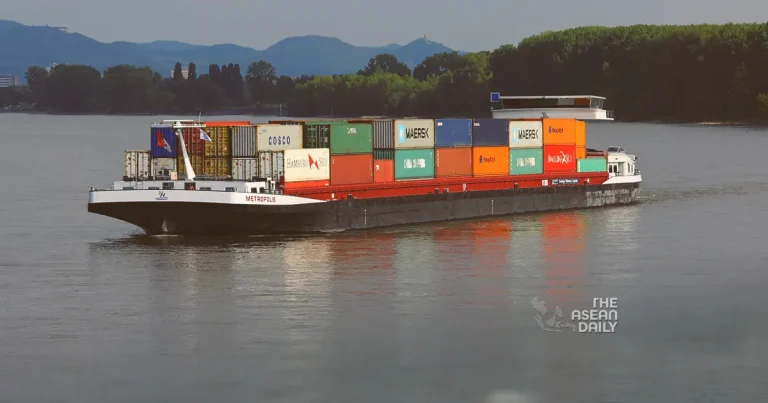12-3-2024 (PHNOM PENH) The proposed Funan Techo canal, a $1.7 billion Chinese-funded project aiming to connect Phnom Penh with Cambodian ports on the Gulf of Thailand, has become a focal point of geopolitical tensions between Cambodia and Vietnam. The canal, touted as a means to enhance Cambodia’s economic autonomy and competitiveness, has raised concerns over its environmental impact on the Mekong Delta, triggering formal objections from Vietnam.
Mao Sarin, a resident along the Mekong River, is among those anxiously awaiting the fate of their homes, which might be displaced if the canal project proceeds. The Funan Techo canal is positioned as a strategic move by Cambodia to reduce dependence on Vietnamese-controlled trade routes, thereby shifting regional leverage and strengthening ties with China.
While Cambodia’s economic interests remain closely tied to Vietnam, the canal project is seen as a symbolic reclaiming of national identity and sovereignty. The canal, also known as the Tonle Bassac Navigation Road and Logistics System Project, is anticipated to commence operations in 2028, spanning 180 kilometers from Phnom Penh to the southwestern coastal province of Kep.
Despite the canal being portrayed as part of a broader logistics transformation to boost competitiveness, concerns have been raised regarding its environmental impact. Vietnam has formally expressed worries about the lack of a publicly available environmental impact assessment, prompting a call for collaborative efforts to ensure the harmony of interests among riparian countries.
The controversy also underscores Cambodia’s delicate balancing act between China and Vietnam, as the canal aims to provide the nation with economic autonomy while relying on Chinese investments. Analysts suggest that this geopolitical maneuvering poses risks and challenges for Cambodia, especially as it navigates its path under new leadership.
The Mekong River Commission (MRC) Secretariat, a regional oversight body, has called for more information from Cambodia regarding the canal’s potential impact on the Mekong Delta. Without adequate precautions, the canal could disrupt natural flooding, increase salinity, and alter water flows, posing threats to the agricultural and economic heart of the Mekong Delta.
While the canal’s proponents argue it will reduce shipping costs and enhance competitiveness, concerns persist over its feasibility, given the financial constraints of Chinese infrastructure investments in the region. The uncertainty surrounding the canal’s future leaves residents along its proposed route in suspense, unsure of their fate in the face of development.
For Cambodia, the Funan Techo canal represents both an economic opportunity and a geopolitical challenge, testing the nation’s ability to assert autonomy while managing regional relationships with China and Vietnam. The project’s fate hangs in the balance, with questions raised about its environmental impact, economic viability, and the geopolitical dynamics at play in the southern Mekong region.




